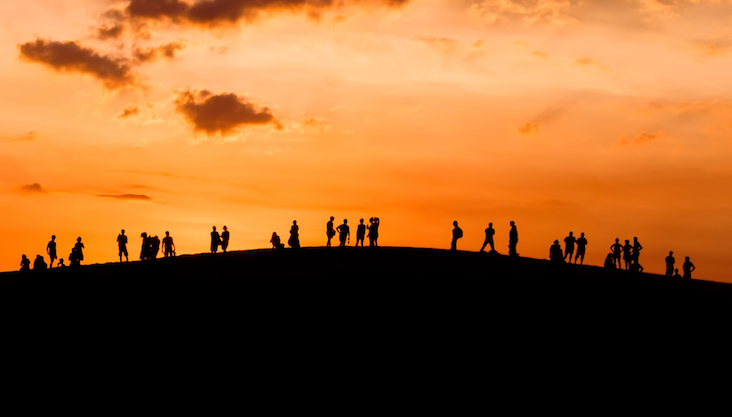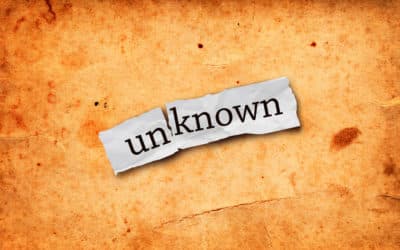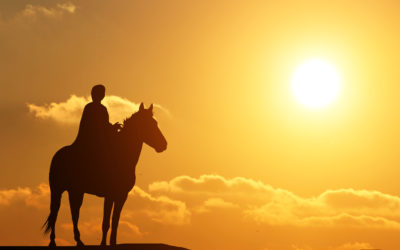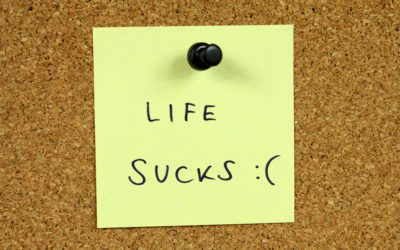My birth family was not dysfunctional. Mom and Dad loved each other and us; my siblings got along as well and at times better than most.
So why the title of today’s blog?
Because the dysfunctional family I grew up in is the same one you grew up in – the “The Family of Man” that Carl Sandburg was writing about when he wrote:
“There is only one man in the world and his name is All Men.
There is only one women in the world and her name is All Women.
There is only one child in the world and the child’s name is All Children.”
What makes you and I related is not just our shared origins, though as Bill Cumming, one of my mentors is fond of pointing out, we’re all cut from the same cloth. If you use the bible as your guide we’re all descendants of Adam and Eve; if you use The Origin of the Species as your bible, we’re all a natural evolution from a single celled amoeba named Dave. (In fairness, I’m pretty sure neither Darwin nor Bill Cumming ever named him, but what can I say, I feel better giving him a name.)
Beyond our family ties at the physical level, we share common goals and desires. We want to love and be loved. We want our children to thrive. We want to feel like we matter and that our lives matter. So… welcome to the family!
But why do I say that our larger human family is a dysfunctional one?
Here’s a list of “features common to most dysfunctional families” taken from Wikipedia. See if you recognize any of them in the behavior of your brothers and sisters around the world:
- Lack of empathy, understanding, and sensitivity towards certain family members… while expressing extreme empathy towards one or more members who have real or perceived “special needs”. In other words, one family member continuously receives far more than he or she deserves, while another is marginalized.
- Denial (refusal to acknowledge abusive behavior, possibly believing that the situation is normal or even beneficial; also known as the “elephant in the room.”)
- Inadequate or missing boundaries for self (e.g. tolerating inappropriate treatment from others, failing to express what is acceptable and unacceptable treatment, tolerance of physical, emotional or sexual abuse.)
- Disrespect of others’ boundaries (e.g. physical contact that other person dislikes; breaking important promises without just cause; purposefully violating a boundary another person has expressed)
- Extremes in conflict (either too much fighting or insufficient peaceful arguing between family members)
- Unequal or unfair treatment of one or more family members due to their birth order, gender, age, family role (mother, etc.), abilities, race, caste, etc. (may include frequent appeasement of one member at the expense of others, or an uneven/inconsistent enforcement of rules)
Even the most dysfunctional families can heal.
I am writing this in Hawaii, and like many “mainlanders”, my knowledge of the Hawaiian culture comes mostly from Steve McGarret, Dano, Lilo, and Stich. But they taught me that the word “ohana” means family, and that as cousin Lilo famously said, “Family means nobody gets left behind… or forgotten.” Some slightly deeper research into the word reveals that an ohana should always be looking to make life better for future generations, looking as far as seven generations ahead.
So if we’re going to make the family more functional, it’s going to have to start with us.
How do we begin?
1. We open ourselves up to the possibility that it’s not too late and that what we do matters. As Marianne Williamson wrote, “God heard us. He sent help. He sent you.”
2. We wake up to the aloha spirit inside us. Aloha literally means “the breath of life” – the joyful loving energy that runs through us. We align with that deeper spirit and let it clear our vision and guide our actions.
3. As we live more in tune with the spirit within us, we find a common ground with every human being on the planet – our shared humanity and divinity. We treat every human being with loving kindness as though they are a part of our extended family – brothers, sisters, uncles, aunts, parents and grandparents, sons and daughters.
It’s not always easy and not everyone will come along for the ride. But when even just a few family members decide that the cycle of abuse and dysfunction will end with them, it changes the future for at least seven generations to come.
With all my love,
![]()





